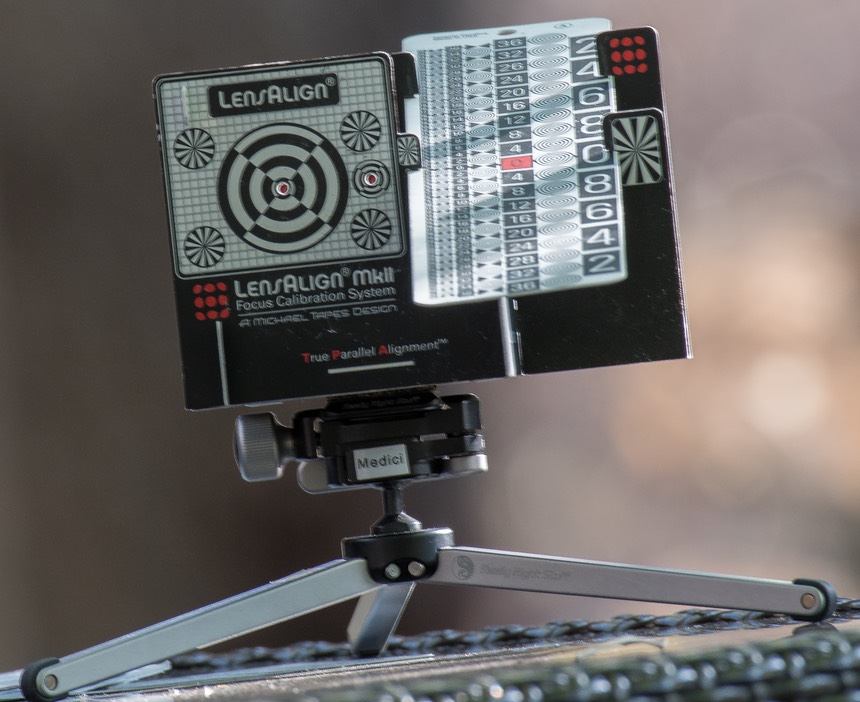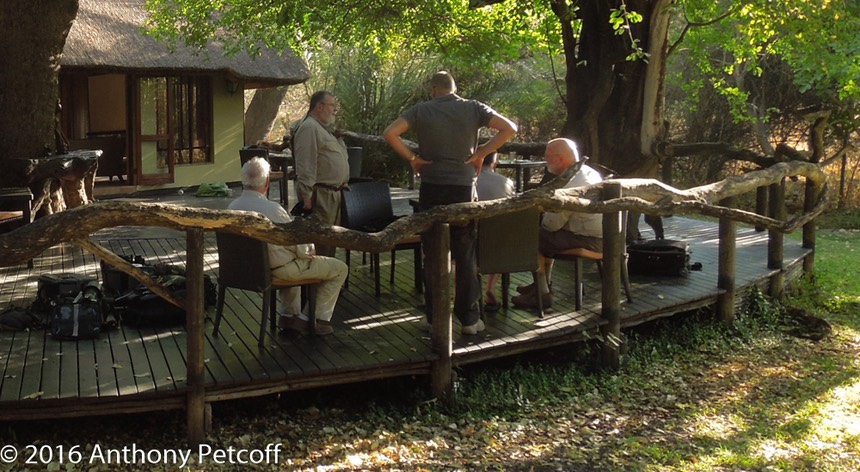Yes, it’s another long travel day for Tony and I. Our short little warmup shoot is over and we’ve now backtracked to Maun, right to the Capricorn headquarters (Capricorn is the safari operator I use in Botswana). Shane made the mistake of offering to do laundry for us and letting us take a shower in the house, so Tony and I gladly dumped our bags for him and hit the bathrooms ;~).
Shane then further made the mistake of giving us the option of driving straight out to Royal Tree Lodge or to go to the airport and wait for the last couple of students to arrive, and then take them to the Royal Tree Lodge with us. Of course we opted for going to the airport, because we knew that we’d be early, the plane would be late, and we’d have time for a nice lunch somewhere we haven’t eaten before.
Our choice of meal stops? The only Indian, Chinese, Continental, and Pizza place in town. Yes, all four. The menu comes with a total of 261 choices. I know, because they were all numbered.
Surprisingly for such an unfocused kitchen, the food was very good. Tony got his “usual” chicken salad and gave it a thumbs up. I went for a burger not made from cow, which also gets a thumbs up from me.
To show you just how small a town Maun is—even though it’s over 40,000 people now—the credit card machine didn’t work as we finished up. Shane just gave them his office telephone number and told the restaurant to square it with them, and that was fine with the restaurant. There’s a lot of trust between the small businesses in town, and they pretty much all know each other, so when the infrastructure breaks, they’re all used to some manual shuffling to get things done. Being in the middle of nowhere, the infrastructure breaks quite often, unfortunately.
We crossed the street over to the airport, walked into the terminal and arrived just in time to meet our last students. With their bags loaded into the Land Cruiser, it was off to the lodge and off to the races for Tony and I.
I mean that almost literally. From the time we popped into the lobby at the Royal Tree until bedtime late that night, we were going non-stop. In the afternoon Tony was taking three students at a time out in the Land Cruiser through the Royal Tree grounds shooting the various game from the vehicle and showing everyone how to shoot comfortably and well supported from the vehicles, while I was dealing with a few students at a time pointing all their gear at this (yes the camera is tilted in this shot):

You’ll note something: we’ve got the LensAlign chart mounted to a small RRS tripod. Yes, that means we have an Arca Swiss plate mounted to the bottom of the LensAlign we take out into the field. There’s a reason for that. We set that chart on a far table on the deck (see below), and shoot with my Rue ground/window pod in ground position from a table on the opposite side of the deck. This puts most lenses almost exactly at the right height to get quick alignment of the test target (red dots in the holes, above). It takes only a few moments to set everything up by using plates at both ends.
From there, it’s all about how good my eyes are (or aren’t). Yes, I do everything by trial and error, and I do it very quickly these days. In the course of a bit more than an hour I checked—and in some cases corrected—alignment on nearly 30 lenses.
How am I doing it so fast? I look at pairs of numbers very carefully. The shot above was from at the end of the day, and I don’t like the low light slashing across the chart, both because color of light affects AF Fine Tune and because it makes it difficult to interpret the chart. It also has a bit of motion blur to it due to a low shutter speed, but it’s the only surviving shot I’ve got.
I start with the biggest number pairs (2 and 2, 4 and 4, etc.) and try to assess whether the front number in a pair is sharper than the back number, the same, or less sharp. I’ll look at the next number set down and do the same thing. Then the smallest set.
At that point I’ve formed an opinion, and I’ll test it with a change in AF Fine Tune value. In most cases, it takes me only two or three tries to lock down a value for a lens this way. But then I’ve been doing this for years now, and for hundreds of lens/camera combinations, so I know the subtle things to look for. I really wish I could slide the ruler over to the lens axis after grabbing the focus from the flat target, because one of the subtle things is reading values offset to the side like that makes you vulnerable to things like field curvature, which you have to interpret correctly. Also, there’s depth of field to consider. Still, I know these lenses well enough now and how they look properly aligned and unaligned, so it generally is very quick work for me. I had every student go off and test their alignment on several subjects before we determined things we “right.” I believe we only re-did one lens after such a confirmation test.
Here’s my workspace for the afternoon:

Meanwhile, as students were moving between Tony and I, we had them fill their bean bags.
We’re trying something different this year. Instead of natural ingredients, we had a bunch of waste plastic chopped up and recycled into small pellets in Maun, and we’re using those to fill the bags. I was a little worried that the weight wouldn’t come out quite right—I feared plastic might be too light—but as it turns out, when you fill the bean bags, they come out just about the same as they did last year with corn in them, both in weight and feel. This is great, because it means we can just re-use this filler over and over (Capricorn is storing it between workshops, and we can always put it back into the local recycling stream whenever we need to). I’ve always hated pretty much wiping out the local store of corn each year, so now we don’t have to do that.
With lenses tuned and students trained on how to shoot from the vehicle, I went into presentation mode. Before dinner we did a quick introduction to the way I teach composition, after dinner we finished up with some specifics on the things you have to look for while shooting on safari and how to deal with the problems that (will absolutely) come up.
Now, you’re probably thinking that Tony and I were going to enjoy resting in a nice permanent cabin at the lodge. Nope. Turns out that my group coupled with another had them bursting at the seams and no room at the inn for us. No worries, though. Capricorn put up one of their “luxury” tents for us out in the animal area (where Tony was showing people how to shoot from the vehicle). Turns out luxury means a flush toilet in a very large tent with two rooms. I’m not kidding you. A flush toilet in a tent. I could glamp (glamour camping) like this any day…
Tomorrow, back to safari shooting.